MACADAMIA OIL
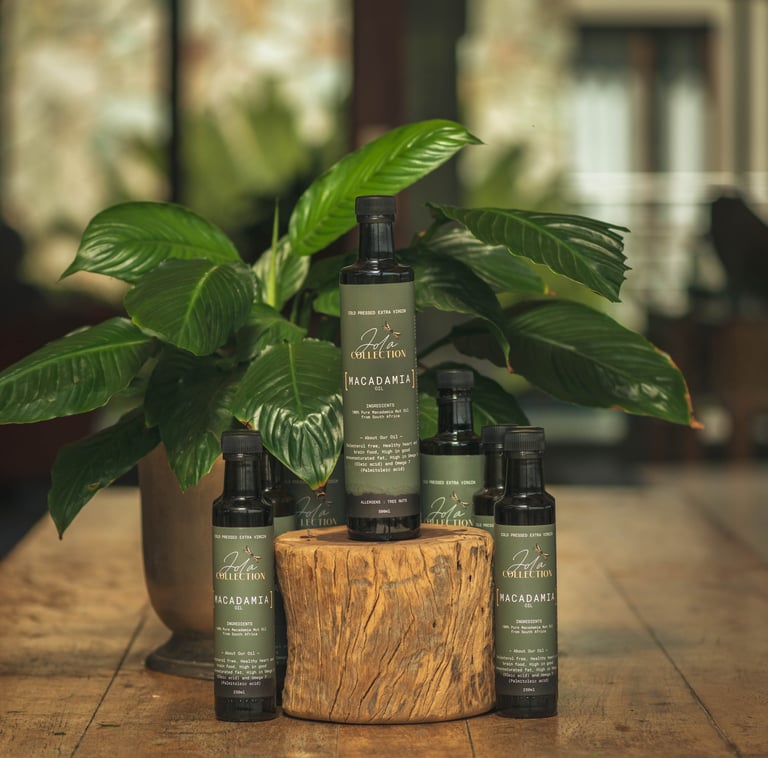

Extracted from macadamia nuts, this nutrient-rich oil is prized for its health, culinary, and skincare benefits.
Heart Health – High in monounsaturated fats, it helps lower bad cholesterol and supports cardiovascular wellness.
Antioxidant Power – Contains vitamin E and tocotrienols, which combat oxidative stress and promote anti-aging.
Culinary Excellence – With a high smoke point and mild flavor, it’s perfect for cooking, baking, and salad dressings.
Skin & Hair Care – Deeply hydrating, it nourishes skin, strengthens hair, and protects against environmental damage.
RAW HONEY
A natural sweetener straight from the hive, raw honey is packed with nutrients and medicinal properties.
Rich in Antioxidants – Helps fight free radicals, reducing inflammation and supporting overall health.
Healing Properties – Used for wound care, soothing sore throats, and boosting immunity.
Digestive Support – Contains enzymes that aid digestion and promote gut health.
Natural Energy Source – Provides a quick energy boost while offering essential vitamins and minerals.
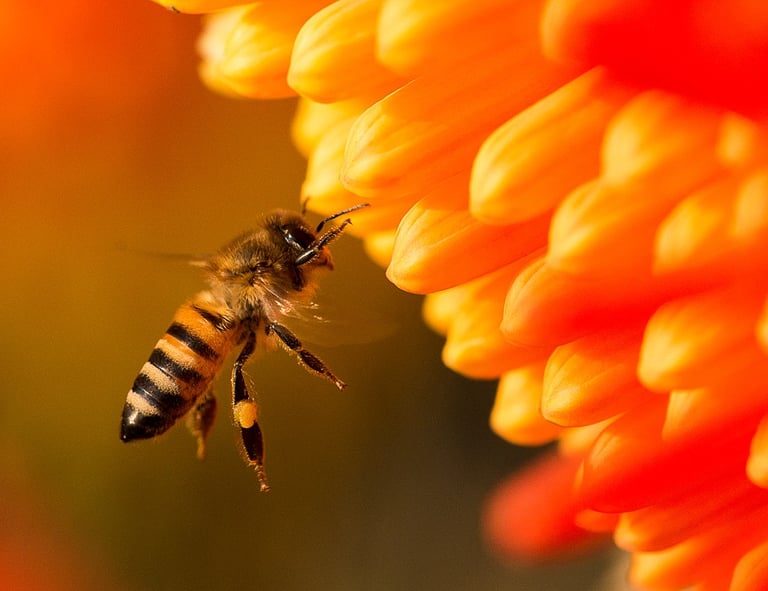

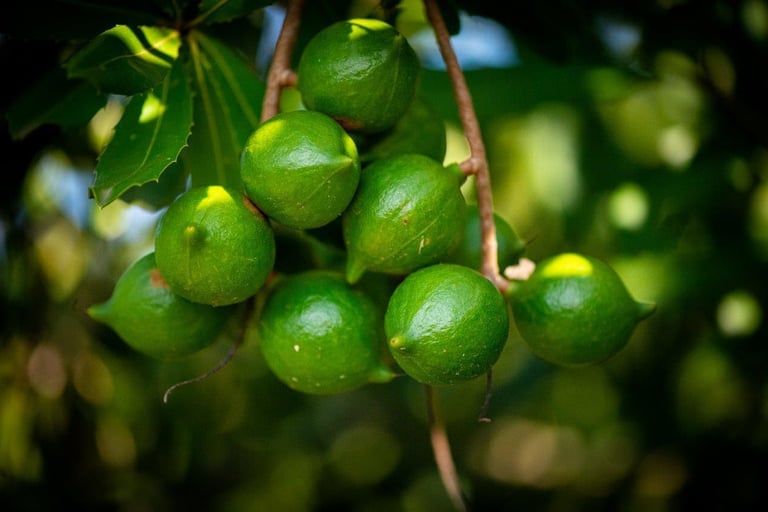

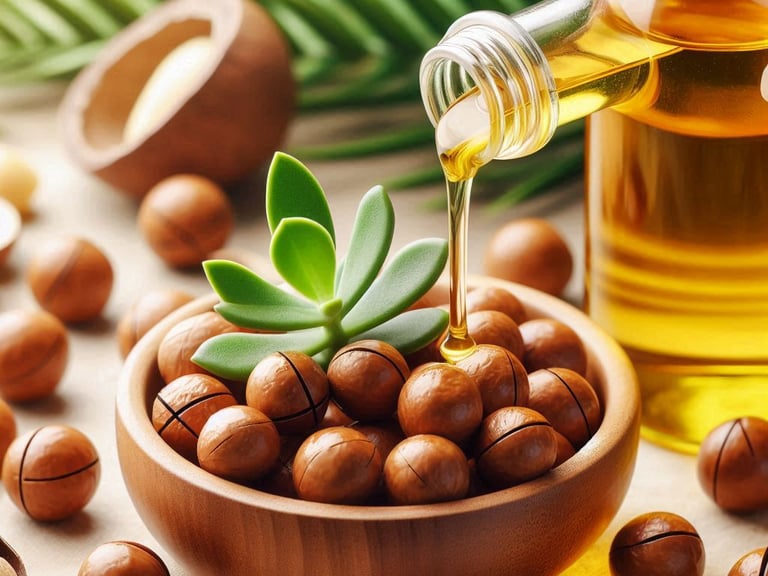

The Golden Goodness of Macadamia Oil: A Healthy Cooking Essential
In the world of culinary oils, macadamia oil stands out as a premium choice, offering not just exceptional flavor but also a wealth of health benefits. Sourced from suppliers in the Lowveld region of South Africa, this cold-pressed extra virgin macadamia oil is an ideal ingredient for those seeking a nutritious alternative in their kitchen.
Why Macadamia Oil?
Macadamia oil is derived from macadamia nuts through a cold-pressing process that preserves its high-quality attributes. This method ensures that the oil retains its essential fatty acids and bioactive compounds, making it a superior choice over solvent-extracted alternatives.
Rich in monounsaturated fats, particularly oleic acid (Omega-9) and palmitoleic acid (Omega-7), macadamia oil supports heart health and cognitive function. These fatty acids help lower harmful low-density lipoprotein (LDL) cholesterol while increasing beneficial high-density lipoprotein (HDL) cholesterol, reducing the risk of cardiovascular diseases.
Among popular oils, macadamia oil has the highest percentage of monounsaturated fat, making it an excellent choice for cooking, baking, and salad dressings.
Macadamia oil boasts a high smoke point of 210°C, making it perfect for deep frying, sautéing, baking, salad dressings and general cooking applications.
Health Benefits of Macadamia Oil
Macadamia oil is not just a cooking staple; it’s a functional food packed with bioactive compounds such as β-sitosterol, tocopherols, tocotrienols, and polyphenols like caffeic acid. These compounds provide antioxidant protection, reducing inflammation and supporting overall well-being.
Key benefits include:
Heart Health: Helps reduce LDL cholesterol and supports cardiovascular function.
Brain Boost: Enhances cognitive performance due to its rich monounsaturated fat content.
Oxidative Stability: The oil's natural antioxidants prevent oxidation, making it safer and more stable for cooking.
Cancer Prevention: Contains bioactive compounds that may help protect against cancer and other chronic diseases.
Storage and Safety
To maintain its golden yellow hue, nutty aroma, and rich flavor, macadamia oil should be stored in a cool, dark place. Consumers seeking natural and safe cooking oil options prefer cold-pressed varieties, as they preserve essential nutrients and eliminate chemical treatments.
Final Thoughts
Macadamia oil isn’t just another cooking ingredient—it’s a health-enhancing powerhouse packed with essential fatty acids, antioxidants, and versatile culinary applications. Whether you're looking for a heart-friendly oil or a premium choice for your cooking needs, macadamia oil is an excellent addition to your pantry.
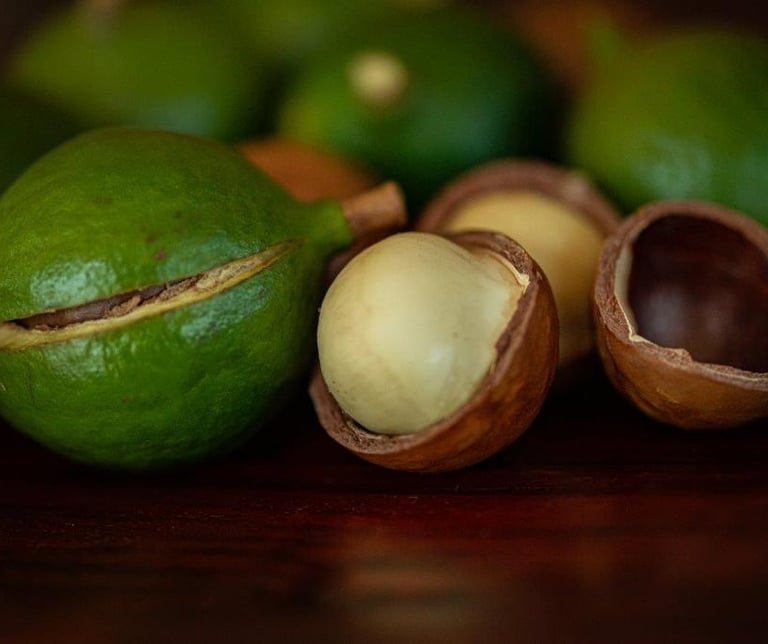

Honey: A Timeless Treasure
A Brief History of Honey
Honey has been a cherished natural sweetener for thousands of years. Ancient civilizations, including the Egyptians, Greeks, and Romans, valued honey for its medicinal properties and religious significance. It was often used as an offering to gods, a healing remedy, and even as a form of currency. Today, honey continues to be celebrated worldwide for its taste, health benefits, and versatility.
How Honey Is Made
The fascinating process of honey production begins with bees collecting nectar from flowers. Here’s how it works:
Nectar Collection – Worker bees gather nectar and store it in their honey sacs.
Enzyme Action – Back at the hive, bees mix the nectar with enzymes to break down complex sugars.
Evaporation – The nectar is placed into honeycomb cells, where bees fan their wings to reduce moisture.
Sealing the Honey – Once thickened, bees cap the honey-filled cells with wax, preserving it for storage.
How Often Is Honey Harvested?
The frequency of honey harvesting depends on various factors, including climate, nectar availability, and hive health. Generally:
Spring & Summer – Bees are most active, producing honey from abundant floral nectar.
Harvesting Time – Beekeepers usually collect honey once or twice a year, ensuring there’s enough left for the colony’s survival through winter.
What Makes Honey’s Health Benefits So Brilliant?
Honey is much more than just a sweet treat—it’s packed with powerful health benefits:
Rich in Antioxidants – Helps protect against cell damage and aging.
Natural Antibacterial Properties – Supports wound healing and fights infections.
Soothes Coughs & Sore Throats – A trusted natural remedy for respiratory health.
Aids Digestion – Contains enzymes that promote gut balance and digestion.
Provides Sustained Energy – Ideal for athletes and those needing a quick energy boost.
The Goodness in Raw Honey
Raw honey is unprocessed and unfiltered, meaning it retains all the beneficial enzymes, nutrients, and antioxidants found in nature. Unlike commercially processed honey, raw honey:
Contains Natural Pollen & Enzymes – Enhancing its health properties.
Has a Unique Flavor Profile – Varies based on the flowers bees visit.
Supports Local Beekeeping & Pollination – Benefiting both bees and the environment.
A Safety Note: Botulism Risk
Infants under one year old should never consume honey, as it may contain spores of Clostridium botulinum, which can cause infant botulism. Older children and adults can safely enjoy honey without concern.
Final Thoughts
Honey is one of nature’s most valuable gifts—a delicious, nutrient-rich food with profound health benefits. Whether enjoyed raw, infused into recipes, or used for wellness, honey remains a golden staple in homes across the world.
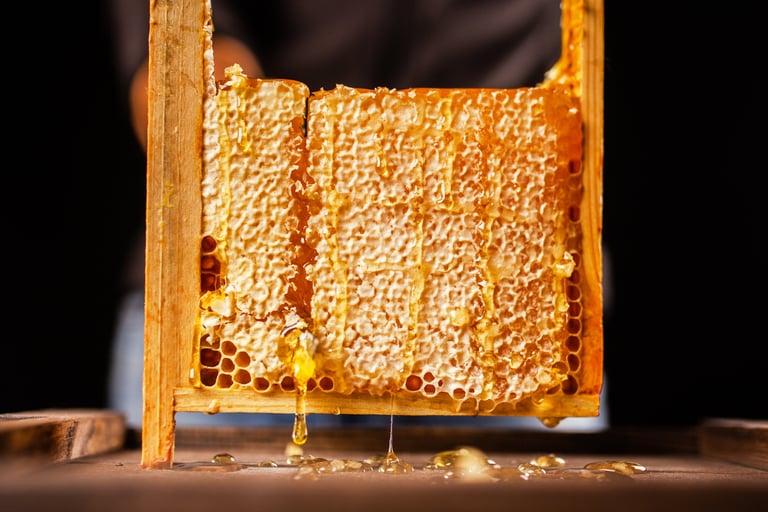

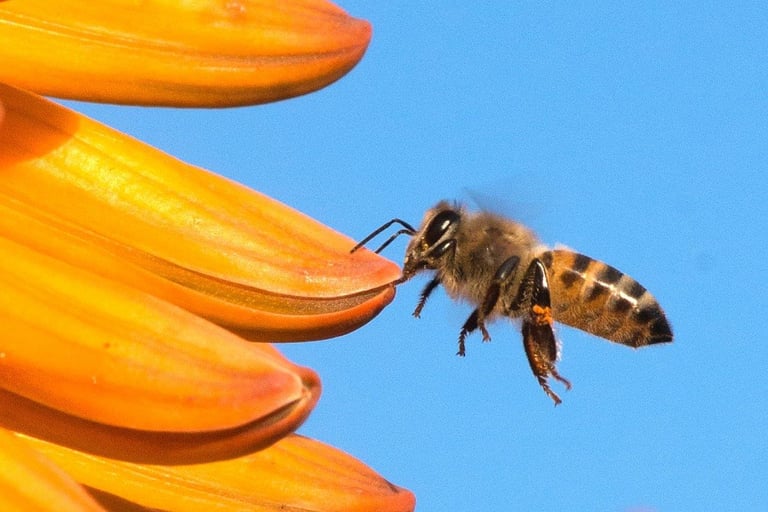

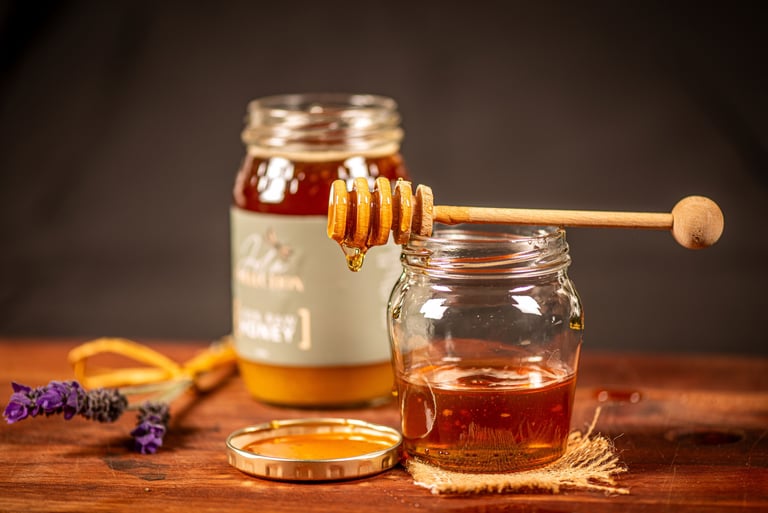

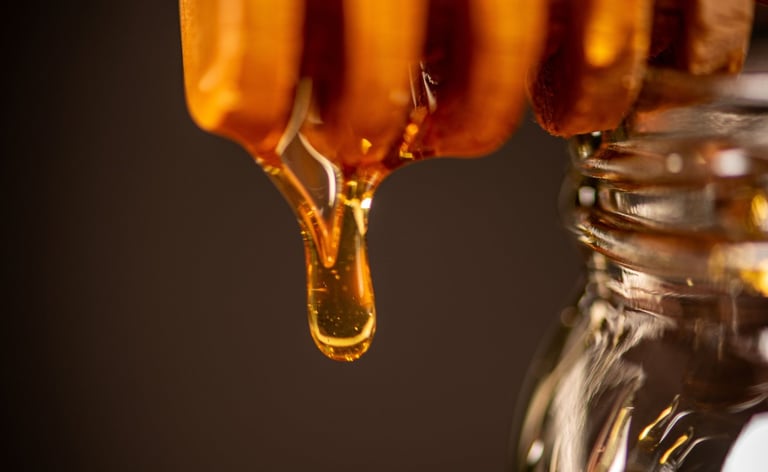

Stitching Hope: How Private Sector Collaboration Uplifted a Community in the Lowveld
August 2025 – Graskop, Mpumalanga
In a country where unemployment and poverty remain pressing challenges, the private sector has a vital role to play—not just in driving economic growth, but in uplifting the communities in which it operates. A recent collaboration in the Lowveld stands as a shining example of what’s possible when business leaders, local communities, and visionary partners come together with purpose.
A Seed of Opportunity
It began with a simple request: 100 curtains were needed for the tented suites at the highly rated Umkumbe Bush Lodge in the Sabie Sands. Margriet Wilkens, representing the lodge, reached out with the project brief. But instead of outsourcing the job to a commercial supplier, the opportunity was redirected toward community empowerment.
Enter Joey Lascelles, founder of Jola Collection, who saw the potential to turn this request into something far more meaningful. Joey coordinated the initiative, connecting the lodge’s needs with the MATHENGWANE sewing group, a small but determined team based just outside Graskop.
Empowering Through Enterprise
The MATHENGWANE group—made up of Rupert, Nonthandazo, and Leah—had recently been equipped with industrial sewing machines thanks to MTO Forestry, a leading company in the sector. Under the guidance of Nwabisa, MTO’s social development representative, the machines were originally intended for producing PPE for forestry workers. But the vision extended beyond safety gear—it was about building sustainable livelihoods.
This curtain project became the group’s first commercial commission. With precision, pride, and professionalism, the team delivered all 100 curtains to exact specifications. Today, those curtains hang proudly in Umkumbe’s luxury tents, bearing silent witness to countless safari memories and the power of community-driven success.
Trust, Collaboration, and Impact
The owners of Umkumbe Bush Lodge, Thinus and Melinda Potgieter, deserve special recognition for their trust in the project. By choosing to support a local initiative, they didn’t just receive a product—they invested in people. Their decision helped validate the skills of the MATHENGWANE group and opened doors for future work.
This partnership is more than a transaction. It’s a model for how the private sector can—and should—engage with communities. When businesses choose to uplift the people around them, they help build resilience, dignity, and economic inclusion.
A Broader South African Context
South Africa faces staggering unemployment rates, particularly among youth and rural populations. Poverty is not just a statistic—it’s a daily reality for millions. Yet within these challenges lie opportunities for transformation. Community-based projects, when supported by the private sector, can become engines of hope and progress.
From sewing curtains to crafting futures, the MATHENGWANE story reminds us that development doesn’t always require grand gestures. Sometimes, it starts with a needle, a thread, and a shared belief in what’s possible.
Looking Ahead
As more businesses recognize their role in social upliftment, partnerships like this one can become the norm rather than the exception. Whether it’s through skills development, procurement, mentorship, or infrastructure support, the private sector holds immense power to shape a more inclusive and prosperous South Africa.
And for every curtain sewn, there’s a story stitched into the fabric of community pride.








Empowerment
Supporting sustainable practices and uplifting entrepreneurs together.
Sustainability
Hope
joey@jolatrade.co.za
+27828546155
© 2025 Jola Collection. All rights reserved. | Privacy Policy | Terms and Conditions | Refund Policy | Contact: joey@jolatrade.co.za| +27 828 546 155 | Follow us on Facebook
